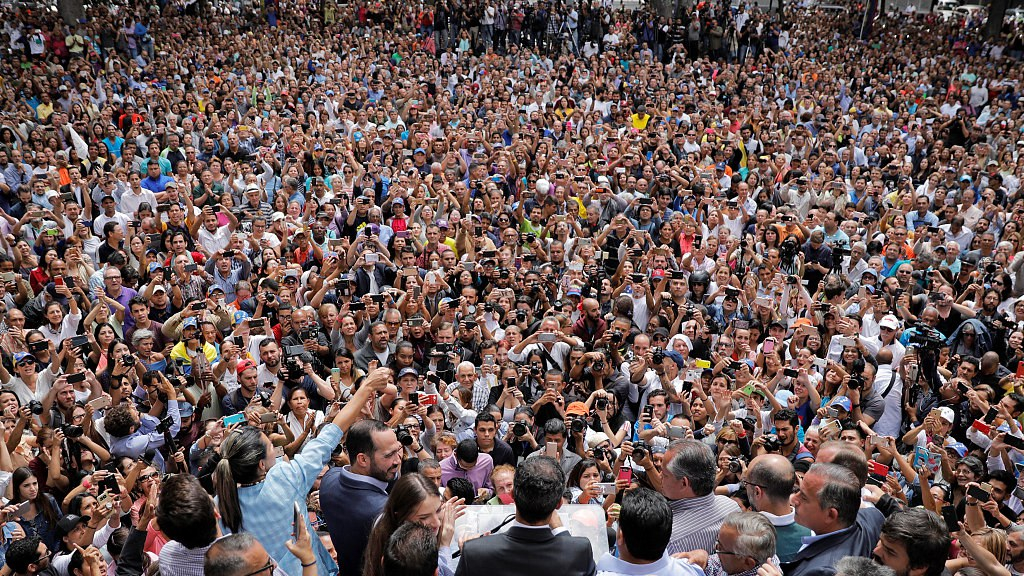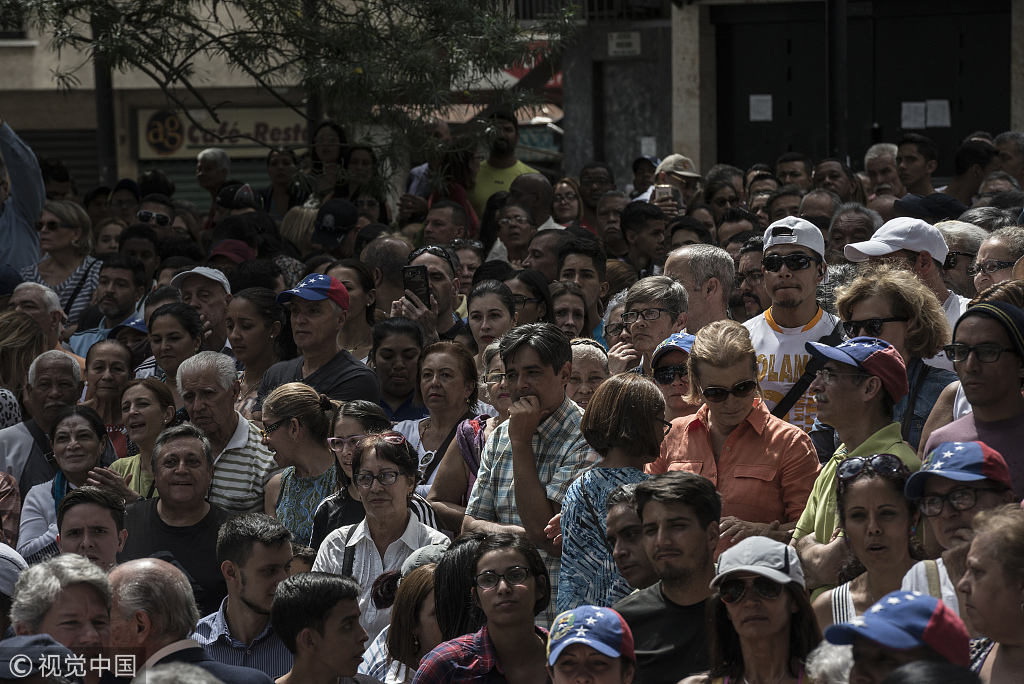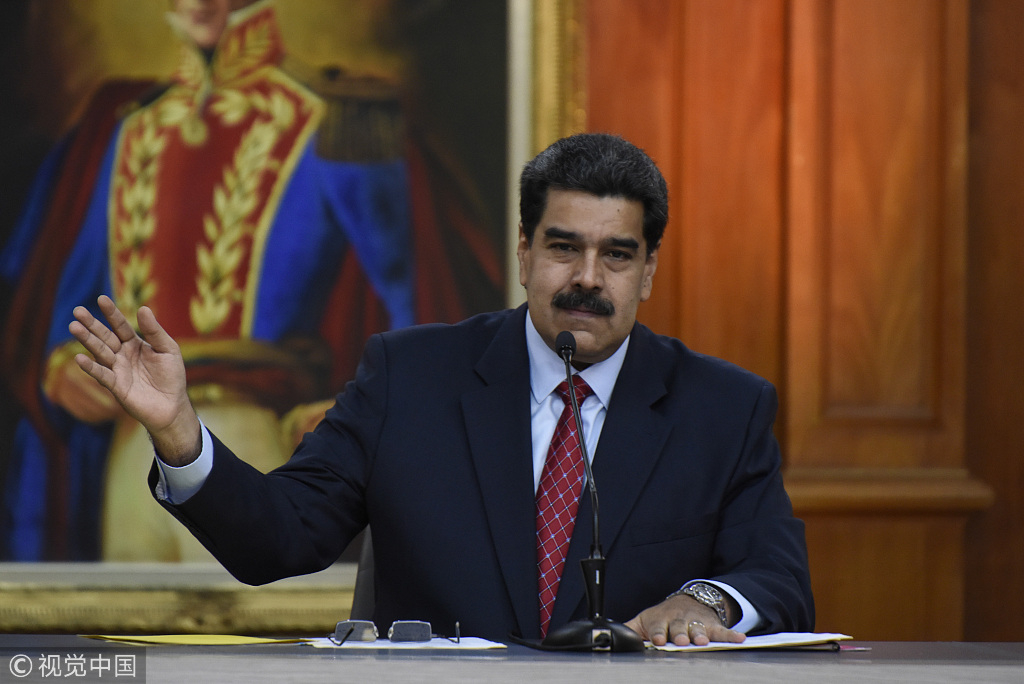
TV Show
10:36, 26-Jan-2019
Expert: U.S. should be responsible for political chaos in Venezuela
Updated
14:50, 26-Jan-2019
The Heat
01:23

The past few weeks have witnessed dramatic unrest in Venezuela. Nicolas Maduro was sworn in for another six-year term as president on January 10 amid criticism from other Latin American countries that his presidency is “illegitimate.” This marks the beginning of the political war between Maduro and the National Assembly.
Days later, Venezuela's opposition leader Juan Guaido declared himself the interim president of the country and won significant support from the United States, Canada, and Brazil.
In the meantime, President Maduro has the solid backing of the country's armed forces. Referring to Guaido's act as a coup, Maduro broke the diplomatic relations with the United States.
Guaido's political move is a violation of the constitution, said Lucas Koerner, a journalist and political analyst at venezuelanalysis.com. He believes that the opposition will only intensify economic sanctions on the country.
Michael Shifter, the president of the Inter-American Dialogue, defends the legitimacy of Guaido. He points out that the constitution is behind Guaido, as the head of the National Assembly can serve as the acting president before the election.

Attendees gather for a rally with Juan Guaido at Bolivar Square in Caracas, Venezuela, January 25, 2019. /VCG Photo
Attendees gather for a rally with Juan Guaido at Bolivar Square in Caracas, Venezuela, January 25, 2019. /VCG Photo
Gloria La Riva, the coordinator of the Cuba and Venezuela Solidarity Committee in the United States, denounced Guaido, saying that the constitution only allows the head of National Assembly to function as the acting president when there is an absolute vacuum of power, but Maduro is still the ruling president.
She further criticized that the White House should be responsible for the lies and attempts to overthrow the Venezuelan government. If the U.S. scheme was to succeed, there would be a great danger to millions of Venezuelans. Washington's ultimate aim is to take control of the abundant oil resources in Venezuela, Riva insists.
Pedro Burelli, the former member of the executive board of Petroleos de Venezuela, believes that the National Assembly is an independent democratic institution that will lead to fair and peaceful elections.
Riva refuted this idea, saying that there had been a long history of U.S. interference in Venezuelan politics. The opposition was allowed to participate in elections, but they were never close to a victory. The United States and the opposition are simply unwilling to acknowledge the election results.

Nicolas Maduro speaks during a televised press conference in Caracas, Venezuela, January 25, 2019. /VCG Photo
Nicolas Maduro speaks during a televised press conference in Caracas, Venezuela, January 25, 2019. /VCG Photo
However, Burelli believes that Guaido has the majority of public support and the army can easily change sides and pick the one that has more support. Consequently, Guaido will gain the military backing.
History suggests that the U.S. intervention would only result in an economic crisis, Riva said, accusing the United States of restricting trade and economic activities in Venezuela.
She further reminds of the 2009 political unrest in Honduras where the U.S. is considered to have played a role. Political instability in Honduras has eventually brought about an influx of refugees at the U.S.-Mexico border.
The political struggle in Venezuela cannot be resolved overnight, as the problem did not occur overnight. It is uncertain whether there will be a paralleled government in Venezuela in the foreseeable future.
The Heat with Anand Naidoo is a 30-minute political talk show on CGTN. It airs weekdays at 7:00 a.m. BJT and 6:00 p.m. Eastern in the United States.
(If you want to contribute and have specific expertise, please contact us at opinions@cgtn.com.)

SITEMAP
Copyright © 2018 CGTN. Beijing ICP prepared NO.16065310-3
Copyright © 2018 CGTN. Beijing ICP prepared NO.16065310-3